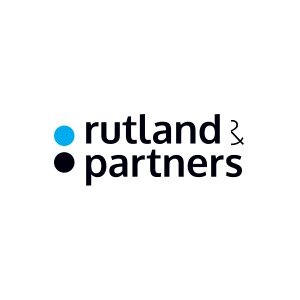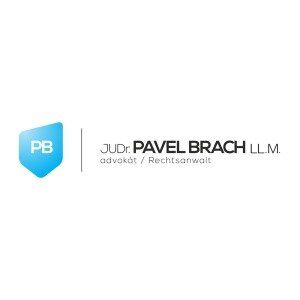Best Mining Law Lawyers in Prague
Share your needs with us, get contacted by law firms.
Free. Takes 2 min.
List of the best lawyers in Prague, Czechia
About Mining Law in Prague, Czechia
Mining Law in Prague, Czechia, is a specialized area of law governing the exploration, extraction, and processing of mineral resources. This field not only addresses the rights and obligations related to mineral ownership but also integrates environmental regulations and safety standards. Czech mining law is primarily based on the national Act on Mining Activities, Explosives and State Mining Administration, and is further shaped by EU directives and local regulations. If you are involved in mining activities in Prague or negotiating contracts related to mineral rights, understanding the legal framework is essential for compliance and protecting your interests.
Why You May Need a Lawyer
There are various circumstances where seeking legal assistance in mining law is highly valuable. Some of the most common situations include:
- Applying for or renewing mining permits or licenses
- Negotiating or disputing mining rights and land access
- Understanding environmental impact requirements and compliance
- Resolving disputes with landowners, neighboring businesses, or authorities
- Managing liability issues related to environmental damage or workplace accidents
- Structuring or reviewing mining contracts and joint ventures
- Understanding taxation and fees related to mineral extraction
- Responding to inspections, audits, or enforcement proceedings by regulators
- Acquiring, merging, or selling mining assets
Local Laws Overview
Mining activities in Prague and throughout the Czech Republic are closely regulated. The main legal instrument is Act No. 44/1988 Coll., on the protection and use of mineral wealth, as amended (commonly known as the Mining Act). This law defines procedures for obtaining mining rights, obligations of miners, and outlines administrative, environmental, and technical requirements. Additional regulations govern occupational safety, environmental impact assessments, and relationships with landowners. The Czech Mining Authority acts as the main regulatory body, issuing permits and overseeing compliance. EU directives also influence environmental and safety regulations, especially if the mining activities have cross-border impacts. Violations can attract significant penalties and operational restrictions.
Frequently Asked Questions
What is considered a "mineral" under Czech mining law?
Czech mining law defines minerals as naturally occurring solid, liquid, or gaseous substances found in the earth's crust that can be economically utilized. This includes energy resources, metals, industrial minerals, and building materials.
Do I need a permit to explore for minerals in Prague?
Yes, exploration requires a license from the relevant mining authority. Unauthorized exploration or extraction is illegal and subject to penalties.
How is land ownership related to mining rights?
Land ownership does not automatically grant rights to explore or extract minerals. Separate mining rights must be acquired from the state, often through a permitting process.
What environmental regulations apply to mining?
Mining operations must comply with national and EU environmental regulations, including environmental impact assessments, pollution controls, and land restoration obligations after mining activities conclude.
What are the penalties for mining without a license?
Mining without proper authorization can result in significant fines, compensation for damages, suspension of operations, and possible criminal liability.
Who regulates mining activities in Prague?
The Czech Mining Authority (Český báňský úřad) and its regional offices supervise mining activities, issue permits, conduct inspections, and enforce compliance.
Can foreign entities engage in mining operations?
Yes, foreign companies can participate in mining activities, but they must comply with all regulatory requirements and, in some cases, establish a local presence or partnership.
What is an environmental impact assessment (EIA) and when is it necessary?
An EIA is a study evaluating the likely environmental effects of a proposed mining project. It is required before permits are granted for most significant mining operations to ensure sustainable practices.
How can conflicts with landowners be resolved?
Disputes may be settled by mutual agreement or, if necessary, through mediation or judicial proceedings. The law provides mechanisms to balance the rights of landowners with the need to access subsoil resources.
What rights do local communities have regarding mining projects?
Local communities have the right to participate in permit procedures and voice concerns about environmental or social impacts, particularly during public consultations as part of the EIA process.
Additional Resources
For further assistance or authoritative information on mining law in Prague, consider the following organizations and resources:
- Czech Mining Authority (Český báňský úřad) - The primary regulator overseeing mining activities
- Ministry of Industry and Trade - Provides policies and updates regarding natural resource extraction
- Ministry of the Environment - Handles environmental regulations impacting mining operations
- Czech Geological Survey - Offers geological data and guidance on mineral exploration
- Local law firms specializing in energy and mining law
- Professional associations for mining and natural resources
Next Steps
If you need legal assistance regarding mining law in Prague, Czechia, take the following steps:
- Identify the specific issues or questions you have related to mining activities
- Gather relevant documentation, such as permits, correspondence with authorities, and land ownership records
- Contact a local lawyer or law firm experienced in mining law and natural resource regulations
- Prepare a list of questions and be clear about your objectives
- Be proactive in understanding both your legal obligations and your rights
Lawzana helps you find the best lawyers and law firms in Prague through a curated and pre-screened list of qualified legal professionals. Our platform offers rankings and detailed profiles of attorneys and law firms, allowing you to compare based on practice areas, including Mining Law, experience, and client feedback.
Each profile includes a description of the firm's areas of practice, client reviews, team members and partners, year of establishment, spoken languages, office locations, contact information, social media presence, and any published articles or resources. Most firms on our platform speak English and are experienced in both local and international legal matters.
Get a quote from top-rated law firms in Prague, Czechia — quickly, securely, and without unnecessary hassle.
Disclaimer:
The information provided on this page is for general informational purposes only and does not constitute legal advice. While we strive to ensure the accuracy and relevance of the content, legal information may change over time, and interpretations of the law can vary. You should always consult with a qualified legal professional for advice specific to your situation.
We disclaim all liability for actions taken or not taken based on the content of this page. If you believe any information is incorrect or outdated, please contact us, and we will review and update it where appropriate.









